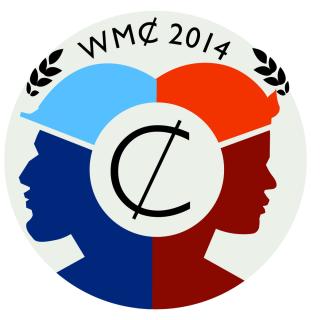
Jeremy Milloy on the Political Economy of Workplace Violence
Just last week in the Supreme Court’s decision in Janus v. American Federation of State, County, and Municipal Employees, the court undermined the power of organized labor in the public sector by making it, for all intents and purposes “right to work.” As our former guest, Sarah Jaffe wrote in the New York Times about the decision: “the corporate class … and its allies on the Supreme Court have dealt labor another body blow.” On this episode, we speak about the literal violence that can manifest on the job if oppressive workplace conditions are left unaddressed. Jeremy Milloy argues that workplace violence from the 1960s-1980s needs to be considered not only as a private matter, but as a matter of politics and economics. Jeremy Milloy is a Social Sciences and Humanities Research Council postdoctoral fellow at the Frost Centre for Canadian and Indigenous Studies at Trent University. He is author of Blood, Sweat, and Fear: Violence at Work in the North American Auto Industry, 1960-80
4 Juli 201846min

Raj Patel and Jason Moore on Capital, Nature, and Cheap Things
When we think about the relationship between capitalism and the environment, it’s all too easy to see them as separate spheres bouncing into one another – capitalism devouring nature, like when a forest is razed for development, or nature threatening capitalist progress, like when a natural disaster later wipes out that development. Raj Patel and Jason Moore see the relationship as much more complicated, while also arguing that the environmental crises we face today are the inherent products of the way that capitalism operates. They trace the relationship between capital and the environment through seven cheap things: nature, money, work, care, food, energy, and lives.
2 Juni 201853min

Mehrsa Baradaran on Black Banks and the Racial Wealth Gap
The racial wealth gap is among the most dire problems in contemporary society. As of 2014, Black households had fewer than seven cents for every dollar owned by white households. This situation of racial wealth inequity is disturbingly similar to the one that existed at the end of slavery. Today, we welcome back to the show Mehrsa Baradaran, our guest from episode 30. We speak to Mehrsa about her recent book about the history of the racial wealth gap and how Black banks—a solution that is often suggested—have instead operated as a decoy, and distracted from more far-reaching solutions. Mehrsa Baradaran is author of The Color of Money: Black Banks and the Racial Wealth Gap. She is Associate Dean for Strategic Initiatives & J. Alton Hosch Associate Professor of Law at the University of Georgia School of Law.
2 Maj 201845min

Malcolm Harris on Millennials and the Economy That Made Them
Tired of reading endless clickbait articles about which industry millennials are killing today? Our guest Malcolm Harris explains how economic restructuring and the ideology of human capital helped to create the millennial generation - and continue to shape the choices they have in the present.
4 Apr 201837min

Keona Ervin on Black Women's Activism in St. Louis
In the summer of 2014, activists in Ferguson, Missouri helped catalyze a cycle of struggle against racist policing, extractive fines and fees, and myriad other injustices that are rooted in racial capitalism and the state. Decades before this in nearby St. Louis Black women activists propelled another vibrant movement for justice and equity. On today’s show, however, we speak with Keona Ervin about St Louis’s actually existing working class and the role of Black women activists played in shaping the struggle for economic dignity in the city. Keona K. Ervin is assistant professor of History at the University of Missouri-Columbia. She received her PhD in History from Washington University in St. Louis in 2009. Professor Ervin’s main research and teaching areas are black freedom movement studies, urban history, black women’s history, and US labor and working-class history. She is the author of the forthcoming Gateway to Equality: Black Women and the Struggle for Economic Justice in St. Louis (Lexington: University Press of Kentucky).
4 Mars 201841min

Melinda Cooper on Neoliberal Family Values
We often think of neoliberalism as operating at odds with the traditional family. Our guest, Melinda Cooper, shows why neoliberals and social conservatives have enjoyed an alliance over the past forty years, and how neoliberalism has long had anxiety about family and morality at its core.
6 Feb 201840min

Bryant Simon on the Hamlet Fire and the Politics of Chicken
Consider the chicken nugget. Many of us can see its round shape in our minds, and recall its salty taste. But what is its history? And what does this history have to tell us about food and capitalism, and about one of the most devastating industrial accidents in recent U.S. history? On today’s show, we speak with Bryant Simon about the 1991 fire at a chicken processing factory in Hamlet, North Carolina. For Bryant, this tragic accident has political and economic causes. And it reveals a tremendous amount the last few decades of U.S. and global history. Bryant Simon is a professor of history at Temple University. He is the author of The Hamlet Fire: A Tragic Story of Cheap Food, Cheap Government, and Cheap Lives.
1 Jan 201849min

Laura Briggs on Reproductive Politics
Popular discussions of U.S. politics often distinguish "social" issues from "economic" issues. Laura Briggs shows us how looking at recent U.S. history through the lens of reproductive politics challenges this division.
2 Dec 201747min





















